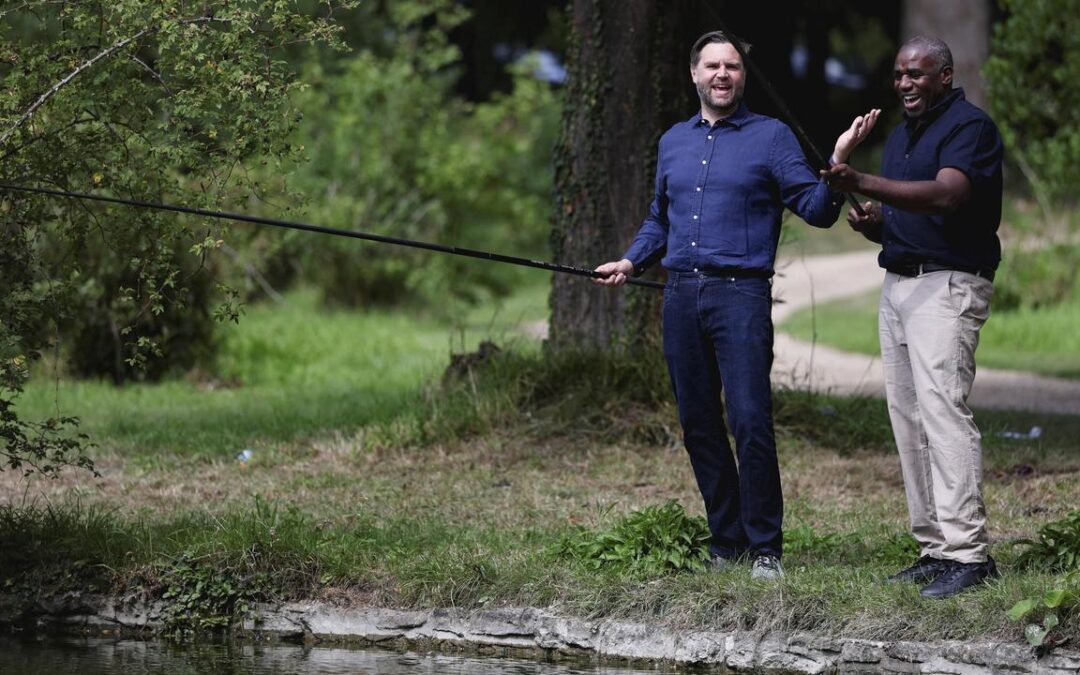
JD Vance mixes diplomacy and fishing on UK trip
US Vice President JD Vance has held official talks and gone fishing with UK Foreign Secretary David Lammy at a stately home south of London.
Global economics, Israel’s war in Gaza and Russia’s full-scale invasion of Ukraine were on the agenda for their discussions.
Taking questions from reporters before their talks, Vance addressed the UK decision to recognise a Palestinian state in September unless Israel agrees to a ceasefire in Gaza.
He said he wasn’t sure what such recognition would even mean, “given the lack of a functional government there”.
Asked whether Trump had been given a heads-up on Israel’s announced intent to occupy Gaza City, Vance said he wouldn’t go into such conversations.
“If it (were) easy to bring peace to that region of the world, it would have been done already,” he said.
The meeting comes as the United Kingdom tries to come to favourable terms for steel and aluminium exports to the US and the two sides work out details of a broader trade deal announced at the end of June.
Russian President Vladimir Putin said on Thursday that he hoped to meet with US President Donald Trump next week, comments that came a day before Trump’s deadline for Moscow to show progress in ending the nearly 3.5-year war in Ukraine.
While Trump has focused on bilateral talks with Putin, UK Prime Minister Keir Starmer and other European leaders have stressed that Ukraine must be part of any negotiations on ending the war.
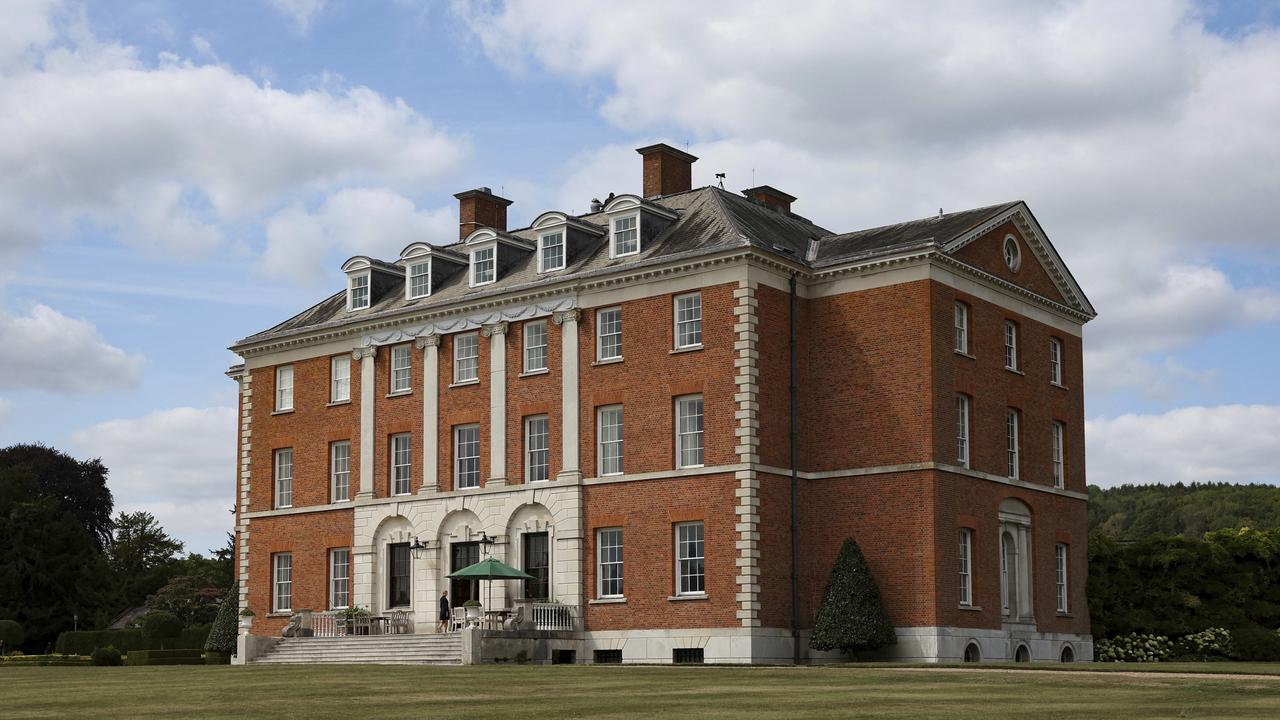
The meeting took place at Chevening, an almost 400-year-old mansion surrounded by 3000 acres of gardens that serves as the foreign secretary’s official country residence.
About two dozen protesters were spotted on the road before the turn-off to the stately home.
Vance and Lammy, come from opposite ends of the political spectrum but have made a personal connection through their hardscrabble childhoods and Christian faith.
While Lammy is a member of the left-leaning Labour Party and Vance is a conservative Republican who supports Trump’s America First agenda, the two men have bonded in recent months.
Lammy told the Guardian newspaper that the two men can relate over their “dysfunctional” working-class childhoods and that he considers Vance a “friend”.
After spending a few days at Chevening, Vance and his family will head to the Cotswolds, an area that has become popular with wealthy American tourists because of its quaint villages, stone cottages and rural countryside that hark back to old England.
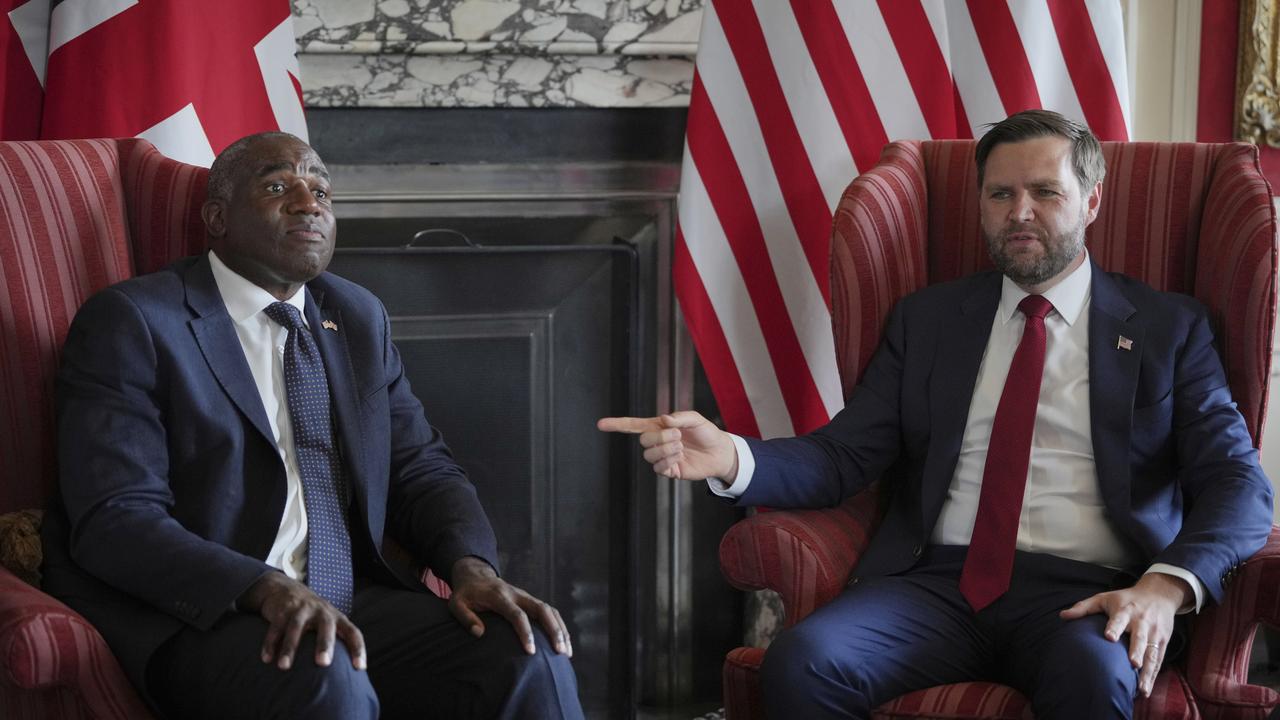
The Vance family’s trip will include official engagements, fundraising, visits to cultural sites and museums and meeting with US troops, according to a person familiar with Vance’s trip who wasn’t authorised to speak publicly.
Vance and his family have reportedly rented a house in the village of Charlbury, 19 kilometres west of Oxford, according to British media outlets.
“That area is very fashionable,” Plum Sykes, a socialite, told The Times.
“If you wanted to be in the super-hot, super-social Cotswolds, that’s where you’d go…There’s been this mass exodus from America to the Cotswolds. Americans just cannot get over the charm. Then power and money attract power and money.”
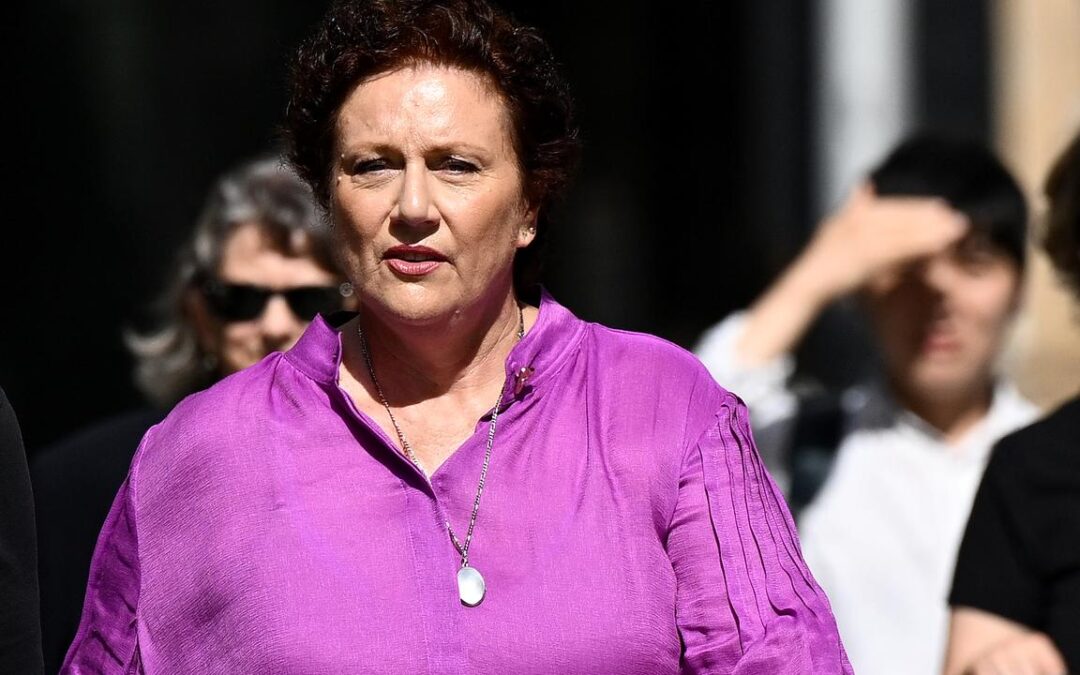
Folbigg review push as $2m ‘plucked out of the air’
A $2 million offer to a woman wrongfully imprisoned for two decades will face further scrutiny as decision-makers blame budget constraints for a figure critics say was “plucked out of the air”.
NSW Premier Chris Minns and Attorney-General Michael Daley have been urged to reconsider the ex gratia payment offered to Kathleen Folbigg.
Ms Folbigg was jailed in 2003 over the deaths of her four children before being freed in 2023 after new scientific evidence cast reasonable doubt over her convictions, which were later quashed.
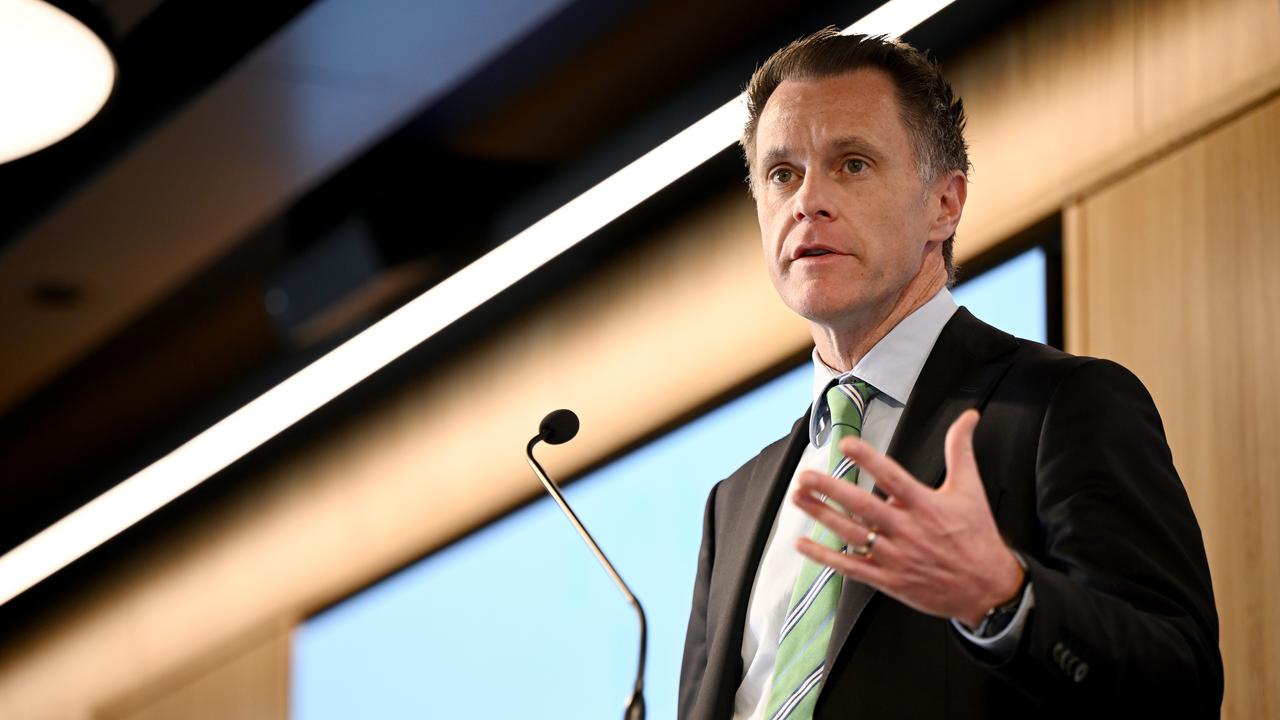
Mr Minns said the $2 million was taxpayer funds and did not come from a “magic pot”.
“This was the most amount of money that we believed we could allocate … without pulling it away from other important programs,” Mr Minns said.
Compensation has been paid to others in the past after legal action and Mr Minns said Ms Folbigg was free to sue the government.
Mr Daley announced the payment on Thursday, more than a year after a compensation claim was submitted.
After telling reporters the payment was offered to close down a push for a parliamentary inquiry, Nationals MP Wes Fang said the government was seeking to avoid scrutiny.
“It wasn’t a coincidence,” he told AAP.
He said the $2 million was a “round figure” and the government had not revealed any information on how it was calculated.
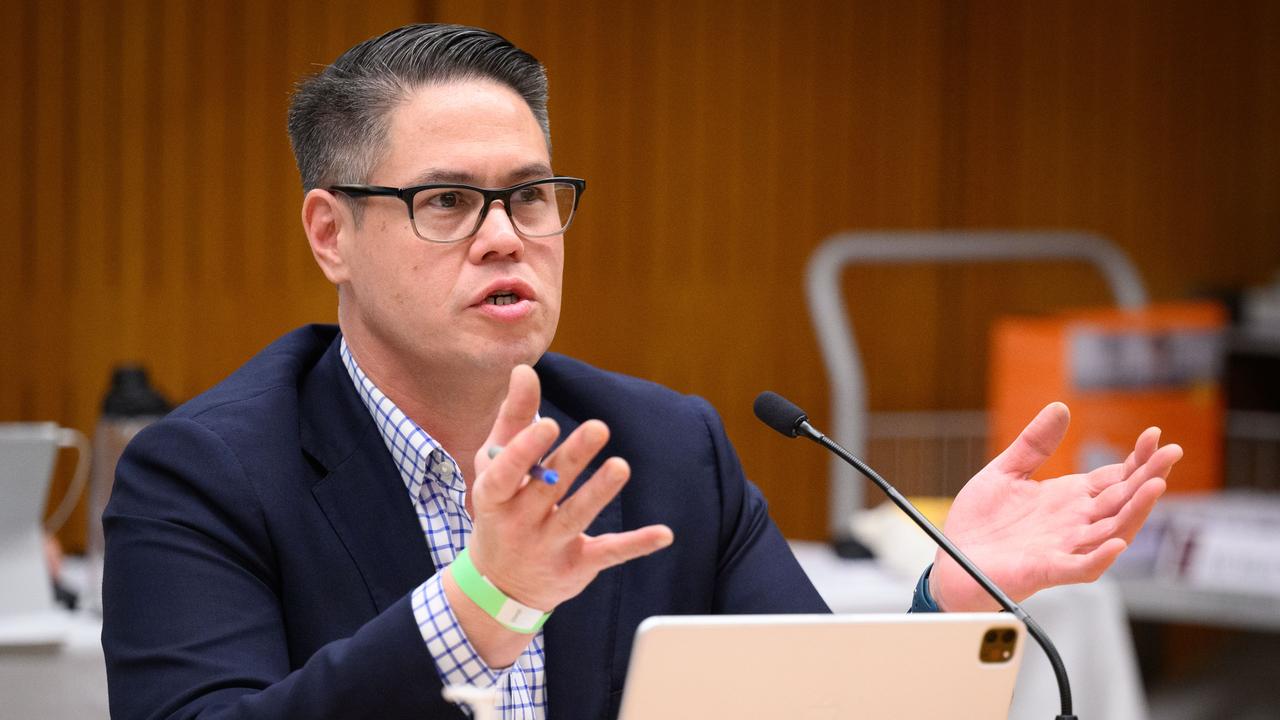
“That raises concerns that there’s been no evidentiary basis for that offer – it’s just been plucked out of the air,” Mr Fang said.
He said the push for an inquiry was more important than ever.
“Mainstream everyday Australians have found the figure to be quite an affront,” Mr Fang said.
“There’s a growing call to understand how there’s been the assessment done, and what assessments have been done.”
Greens MP Sue Higginson said the issue went beyond Ms Folbigg.
“It’s very rare you get such a serious failing of the legal system and you get wrongful conviction and incarceration to this degree, but to suggest it will never happen again is just wrong,” she said.
“It will, and we need a system of credibility with a bit of integrity about how we are going to address these injustices.”
Ms Higginson accepted the budget had constraints.
“But I know there’s room in the budget right now to give Kathleen something more than $2 million, something more commensurate with the harm that the justice system has perpetrated,” she said.
Ms Higginson wrote to the premier and attorney-general on Friday, saying it remained “immensely challenging” to understand how the figure was calculated and urging them to review it.
“I also implore you to meet with Ms Folbigg and her team in negotiating an offer of ex gratia payment that reflects the extraordinary nature of this case,” she wrote.
The premier and attorney-general are due before budget estimates later in August while calls for an inquiry into the payment could be furthered when parliament resumes in September.
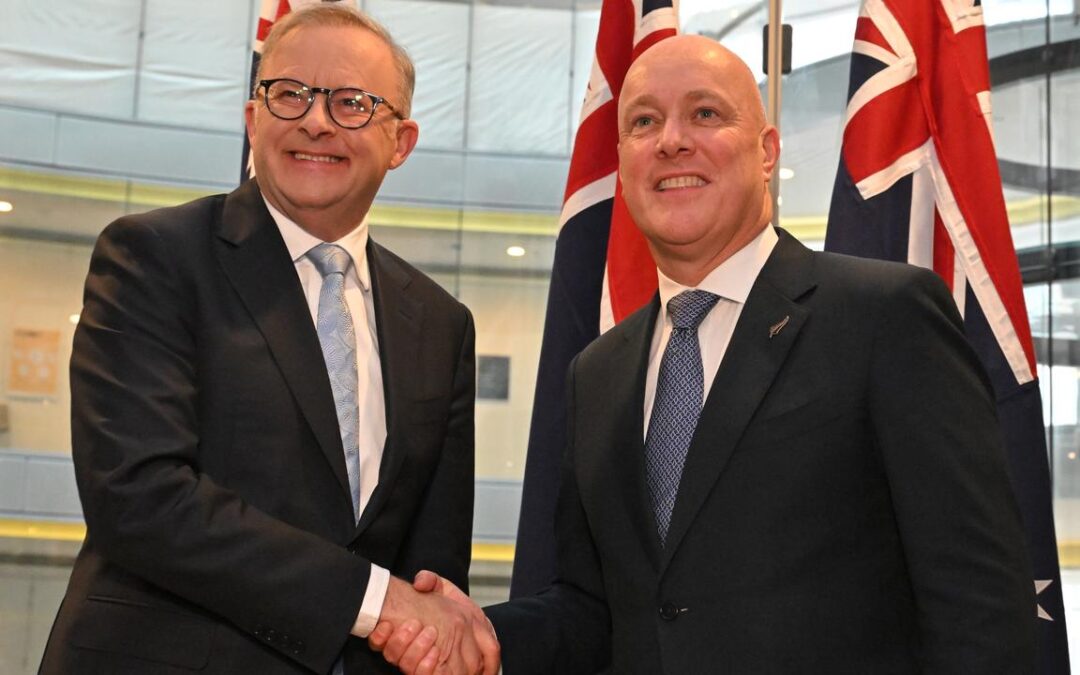
Albanese to travel across the ditch for leaders meeting
Defence, economic partnerships and security will be on the agenda for Prime Minister Anthony Albanese when he meets his New Zealand counterpart.
Mr Albanese will spend the weekend in Queenstown for the annual Australia-New Zealand leaders meeting with Prime Minister Christopher Luxon.
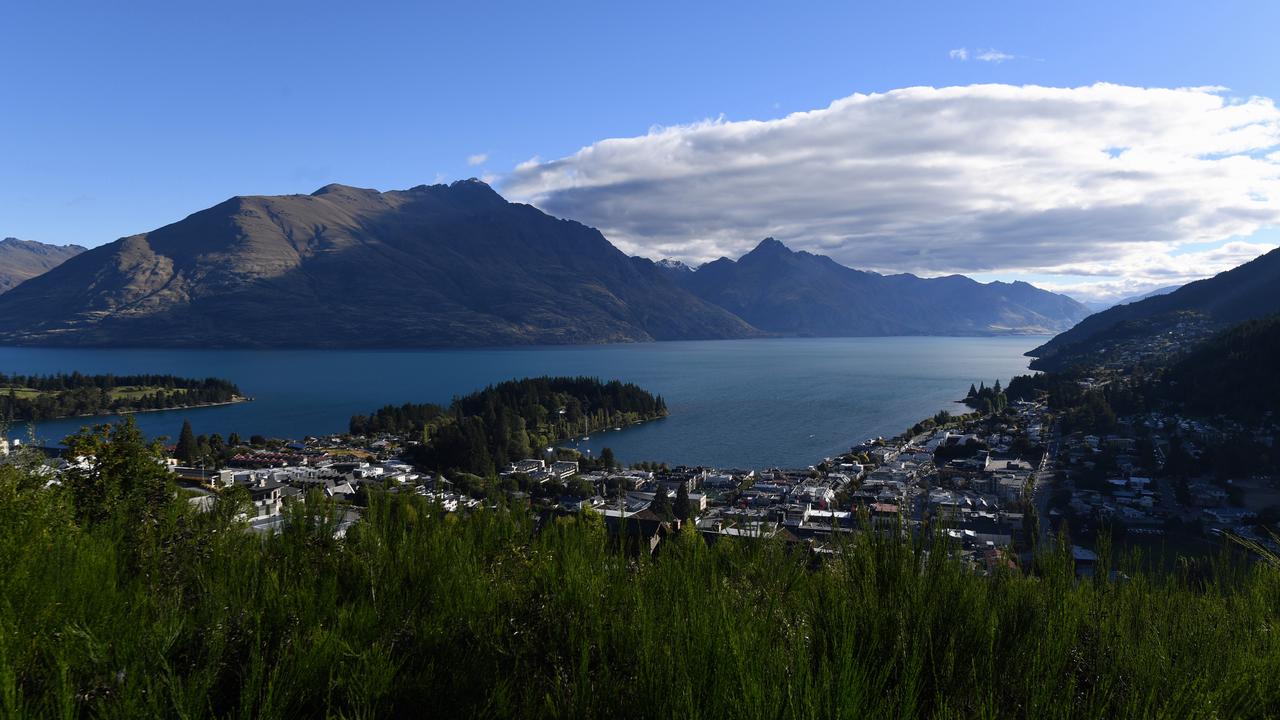
It will be the second time across the Tasman for Mr Albanese, who last visited in 2023 to meet with then-Labour prime minister Chris Hipkins.
Mr Albanese and Mr Luxon represent opposite ends of the political spectrum, but both have affirmed their nations share a “deep and enduring bond” as friends, neighbours and allies.
“I look forward to discussing how we can work together to build on our single economic market, modernise the rules-based trading system, deepen our alliance, and back our Pacific partners,” Mr Albanese said.
The single economic market was established in 2009 to grow trade and deepen investment links between the two countries, making it easier for trans-Tasman business.
Two-way trade between the two countries is worth $32 billion.
Co-operation between the two governments is broad, with more than half of the New Zealand cabinet visiting Australia since Mr Luxon’s government took office in late 2023.
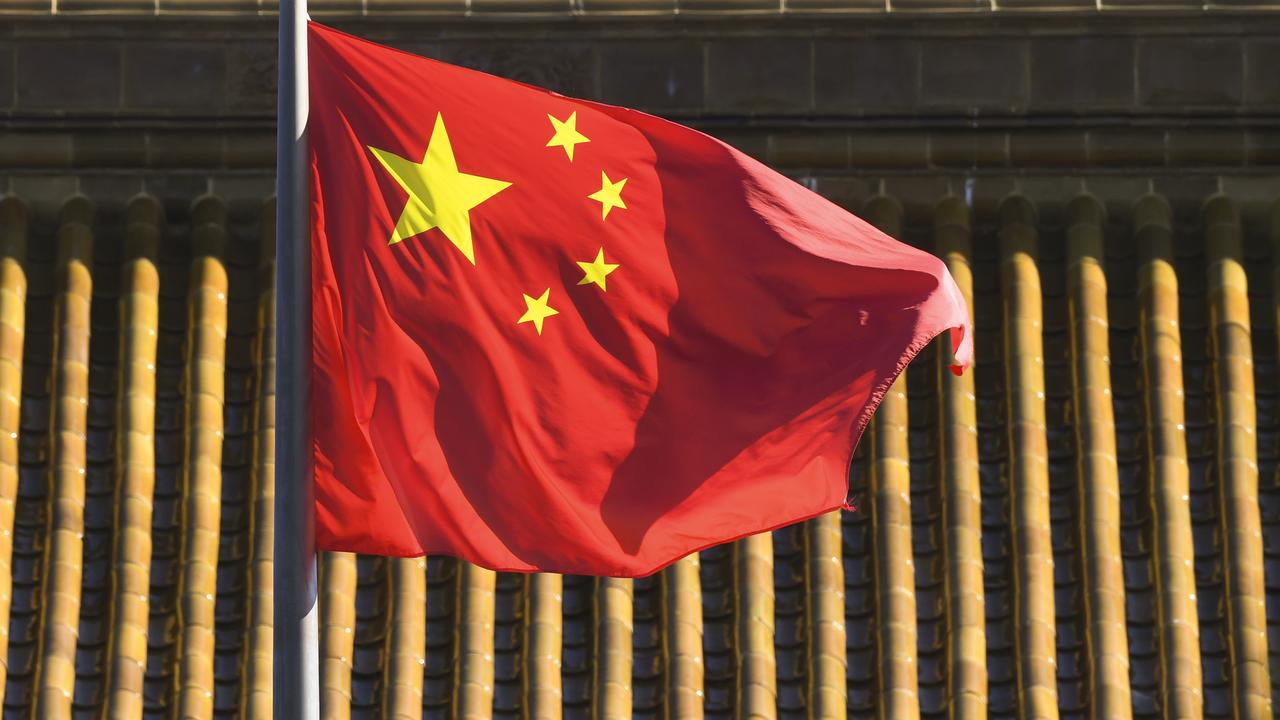
The “complicated” relationship between opportunities and challenges posed by China was likely to be a focus of talks behind the scenes, Victoria University of Wellington’s New Zealand Contemporary China Research Centre director Jason Young said.
“Both prime ministers have recently visited China,” the professor told AAP.
“They had, at least, public-facing, very good visits to stabilise and manage the economic relationship. But at the same time, there’s a bunch of particularly regional security issues which have an impact on both countries.”
The pair could also discuss the impact of the US President Donald Trump’s tariffs.
While Mr Trump raised tariffs against dozens of nations, he showed mercy on Australia and kept levies against most products at 10 per cent.
But New Zealand was not spared and was hit with a 15 per cent “reciprocal” tariff.
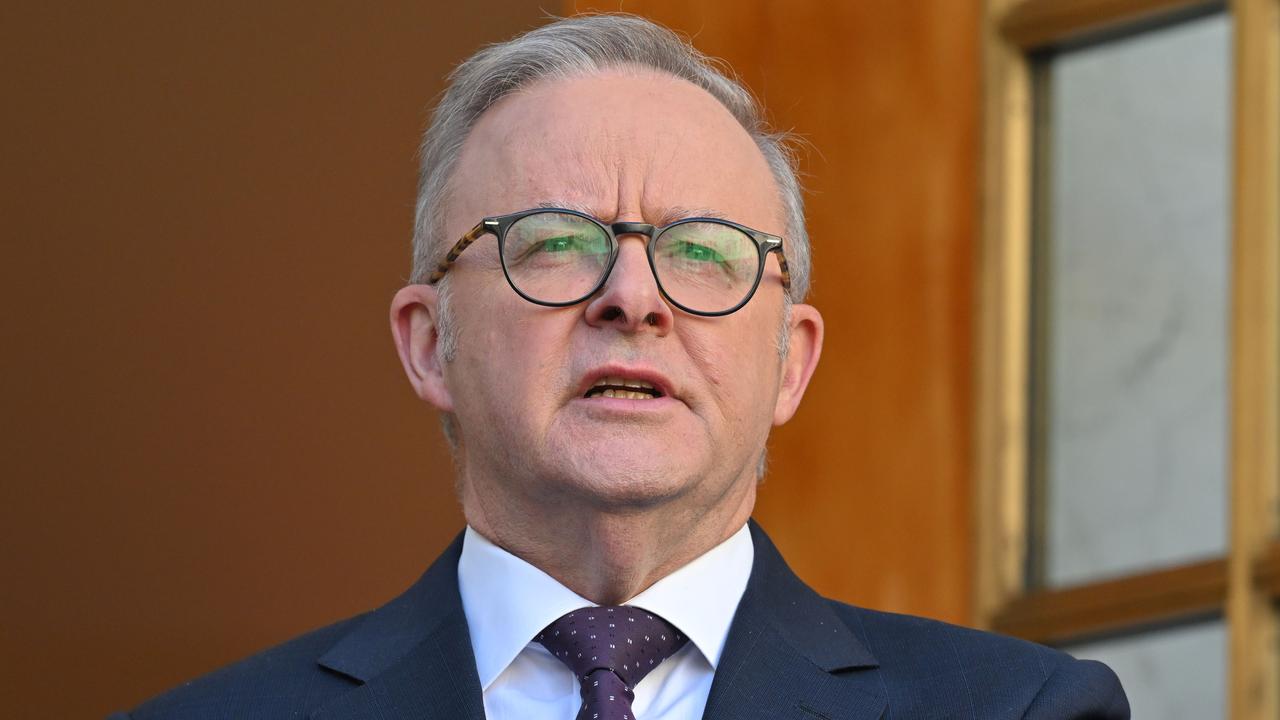
At the most recent leaders’ meeting in Canberra in 2024, Mr Albanese and Mr Luxon discussed migration and creating a closer defence partnership.
David Capie, another professor from Victoria University of Wellington, said the Luxon government had leaned into its partnership with Australia since coming to power.
“You’ve got a New Zealand government that wants to do more with Australia,” the NZ foreign and defence policy expert told AAP.
“The upending of the economic order with the Trump tariffs, the Middle East – all of those things NZ and Australia are finding that they’re very closely aligned.”
Yet deportation remains a point of friction, as New Zealand has long protested Australia’s practice of deporting criminals with Kiwi passports but with stronger ties to Australia.
After the 2024 meeting, the two leaders agreed to “engage closely” on the matter.
Prof Capie said the issue hadn’t faded away completely but was being more delicately handled compared to the Morrison government era.
“You had a lot of deportations and a government that was basically basking in it,” he said.
“But more importantly, the structural changes to the rights of New Zealanders to be able to find a pathway to citizenship mean that there are going to be fewer and fewer over time.”
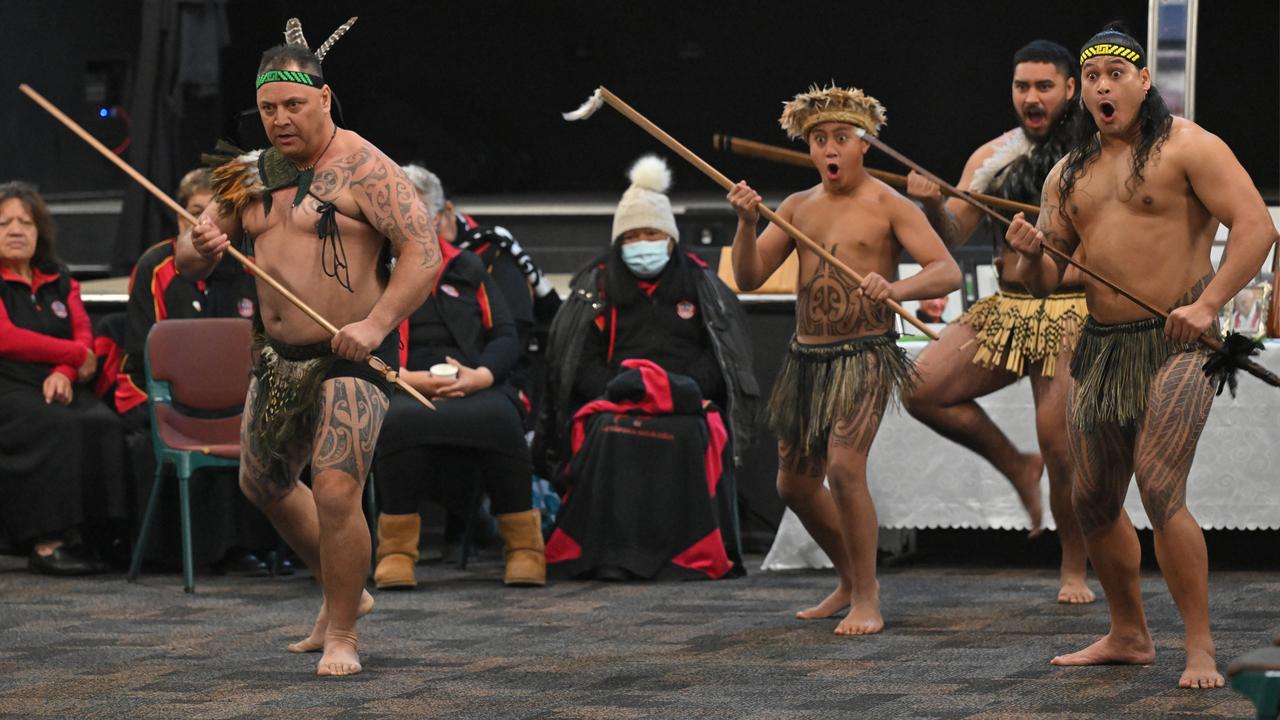
Mr Albanese is expected to be welcomed in a pōwhiri, a formal Māori welcoming ceremony, before he meets with Mr Luxon on Saturday.
He will also meet with Australian and New Zealand business leaders and take part in a business roundtable.
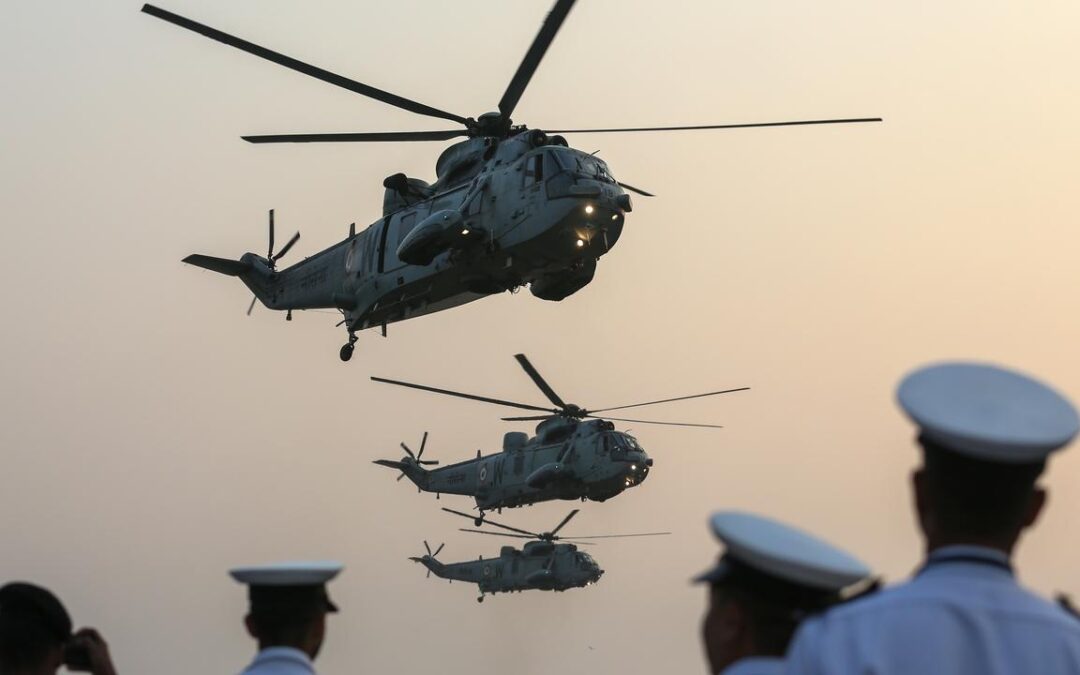
India pauses plans to buy US arms after Trump’s tariffs
New Delhi has put on hold its plans to procure new US weapons and aircraft, according to three officials familiar with the matter, in India’s first concrete sign of discontent after tariffs imposed on its exports by President Donald Trump dragged ties to their lowest level in decades.
India had been planning to send Defence Minister Rajnath Singh to Washington in the coming weeks for an announcement on some of the purchases, but that trip has been cancelled, two of the people said.
Trump, on August 6, imposed an additional 25 per cent tariff on Indian goods as punishment for Delhi’s purchases of Russian oil, which he said meant the country was funding Russia’s invasion of Ukraine.
That raised the total duty on Indian exports to 50 per cent – among the highest of any US trading partner.
The president has a history of rapidly reversing himself on tariffs and India has said it remains actively engaged in discussions with Washington.
One of the officials said the defence purchases could go ahead once India had clarity on tariffs and the direction of bilateral ties, but “just not as soon as they were expected to”.
Written instructions had not been given to pause the purchases, another official said, indicating that Delhi had the option to quickly reverse course, though there was “no forward movement at least for now”.

Post publication of this story, India’s government issued a statement it attributed to a Ministry of Defence source describing news reports of a pause in the talks as “false and fabricated.”
The statement also said procurement was progressing as per “extant procedures”.
Delhi, which has forged a close partnership with America in recent years, has said it is being unfairly targeted and that Washington and its European allies continue to trade with Moscow when it is in their interest.
Reuters is reporting for the first time that discussions on India’s purchases of Stryker combat vehicles made by General Dynamics Land Systems and Javelin anti-tank missiles developed by Raytheon and Lockheed Martin have been paused due to the tariffs.
Trump and Indian Prime Minister Narendra Modi had in February announced plans to pursue procurement and joint production of those items.
Singh had also been planning to announce the purchase of six Boeing P8I reconnaissance aircraft and support systems for the Indian Navy during his now-cancelled trip, two of the people said.
Talks over procuring the aircraft in a proposed $US3.6 billion ($A5.5 billion) deal were at an advanced stage, according to the officials.
Boeing, Lockheed Martin and General Dynamics referred queries to the Indian and US governments.
Raytheon did not return a request for comment.
India’s deepening security relationship with the US, which is fuelled by their shared strategic rivalry with China, was heralded by many US analysts as one of the key areas of foreign-policy progress in the first Trump administration.
Delhi is the world’s second-largest arms importer and Russia has traditionally been its top supplier.
India has in recent years, however, shifted to importing from Western powers like France, Israel and the US, according to the Stockholm International Peace Research Institute think-tank.
The shift in suppliers was driven partly by constraints on Russia’s ability to export arms, which it is utilising heavily in its invasion of Ukraine.
Some Russian weapons have also performed poorly on the battlefield, according to Western analysts.
The broader US-India defence partnership, which includes intelligence sharing and joint military exercises, continues without hiccups, one of the Indian officials said.
India also remains open to scaling back oil imports from Russia and is open to making deals elsewhere, including the US, if it can get similar prices, according to two other Indian sources.
Trump’s threats and rising anti-US nationalism in India have “made it politically difficult for Modi to make the shift from Russia to the US,” one of the officials said.

Patterson husband’s poison fears pre-dated deadly lunch
Poisoned penne, toxic curry, a wrap and antifreeze-laced cookies are among the meals Erin Patterson’s estranged husband claims she tried to kill him with.
The new details, revealed for the first time on Friday, followed the triple murderer’s failed bid to keep pre-trial evidence a secret to preserve her appeal rights.
Patterson, 50, initially faced three attempted murder charges over allegations from Simon Patterson she’d been trying to poison him since 2021.
The attempted murder charges were dropped by prosecutors after Justice Christopher Beale ruled Patterson should face them in a separate trial.
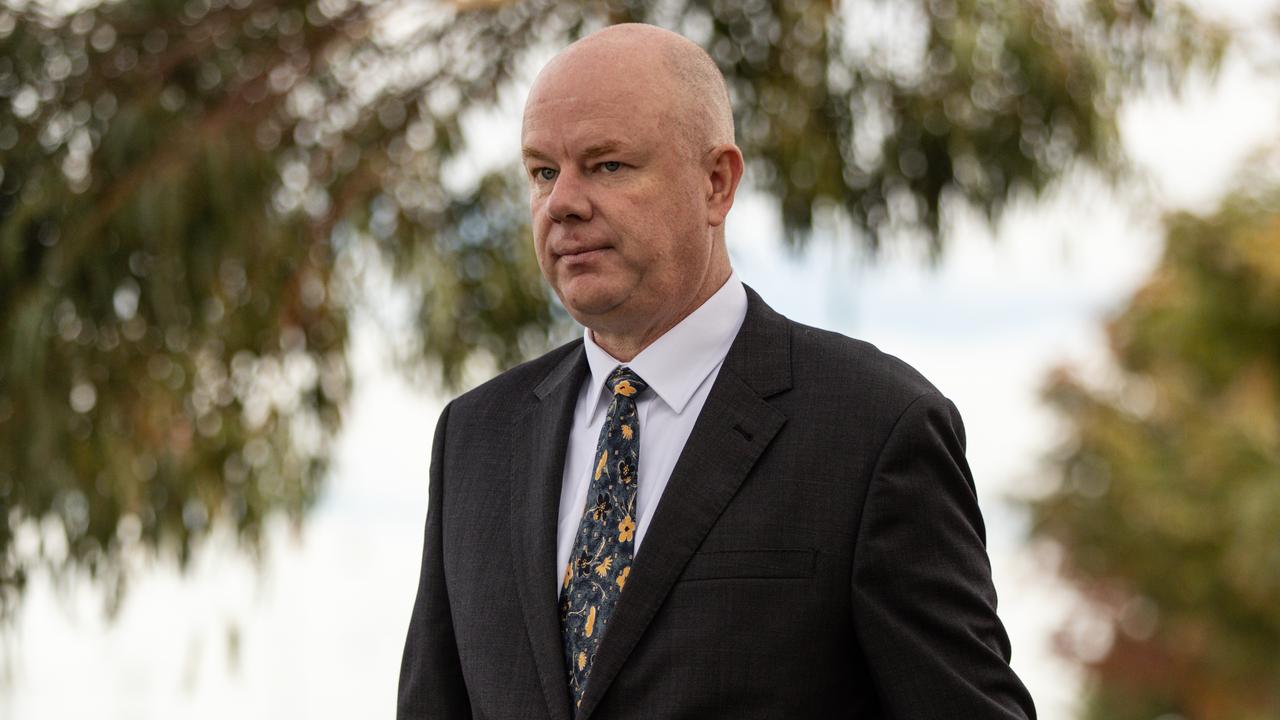
Simon revealed the nature of the allegations during pre-trial hearings in 2024, which had been suppressed until a judge ruled in favour of open justice.
“Open justice is a fundamental concern of our criminal justice jurisdiction,” he told the Supreme Court in Melbourne.
Patterson pleaded not guilty to the attempted murder charges of Simon, as well as the three charges of murder and one of attempted murder.
Simon alleged Patterson had tried to poison him several times between 2021 and 2022.
The first was a penne pasta she cooked him before leaving for a camping trip in November 2021. Simon said he vomited and spent five days in hospital.
But the worst was allegedly after consuming a chicken korma curry Patterson made him, during a camping trip at Victoria’s high country in late May 2022.
“While Erin was preparing food, I was getting the fire going, so I didn’t watch her prepare it,” Simon told a pre-trial hearing.
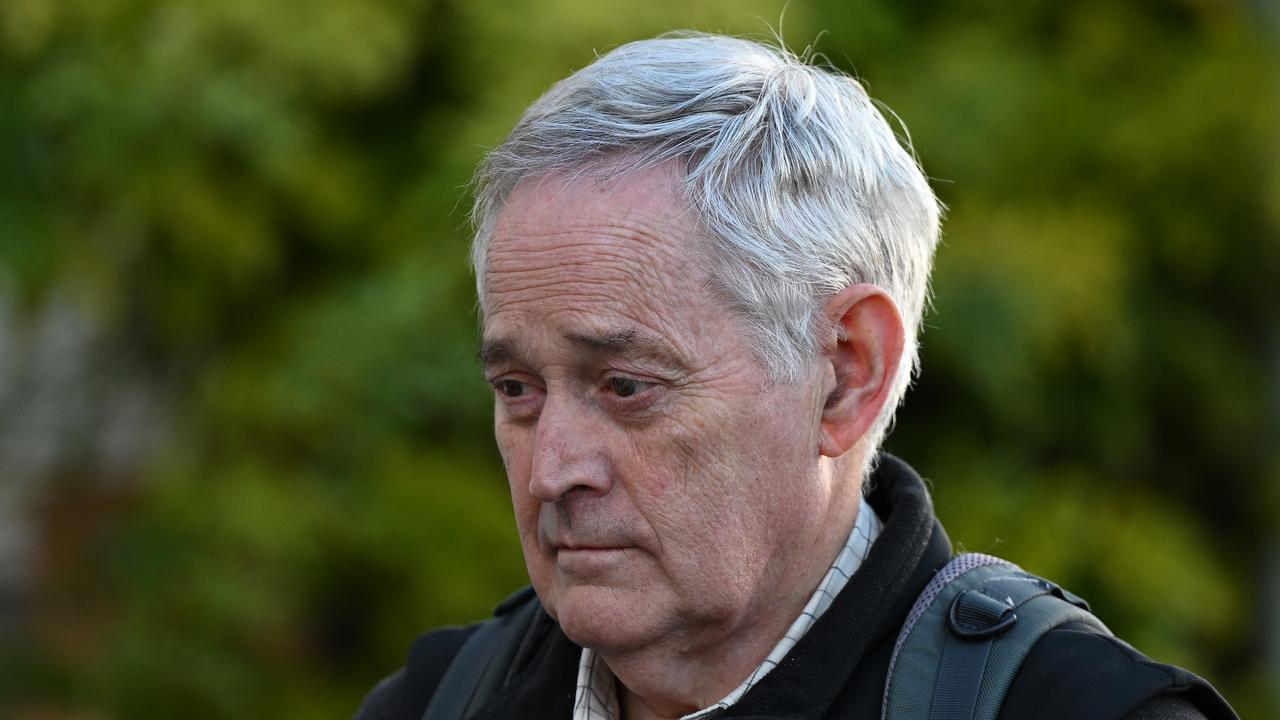
He began to feel unwell about midnight and was assessed at Mansfield Hospital the next day but discharged.
In the days after he got home, Simon’s condition worsened and he ended up in a coma and underwent surgery to remove a large portion of his bowel.
In September 2022, he fell ill after eating a wrap Patterson prepared for him while they were camping together at Wilsons Promontory.
He went to his GP, Christopher Ford, about the alleged poisonings and then had Patterson removed as his medical power of attorney.
Dr Ford told a pre-trial hearing Simon was also apprehensive about eating cookies his daughter gave him, as he believed they might have been poisoned with antifreeze.
He went on an interstate holiday and Dr Ford said Patterson asked if he had eaten the cookies.
“He felt it was odd that she would be so focused asking about the cookies,” Dr Ford told a pre-trial hearing.
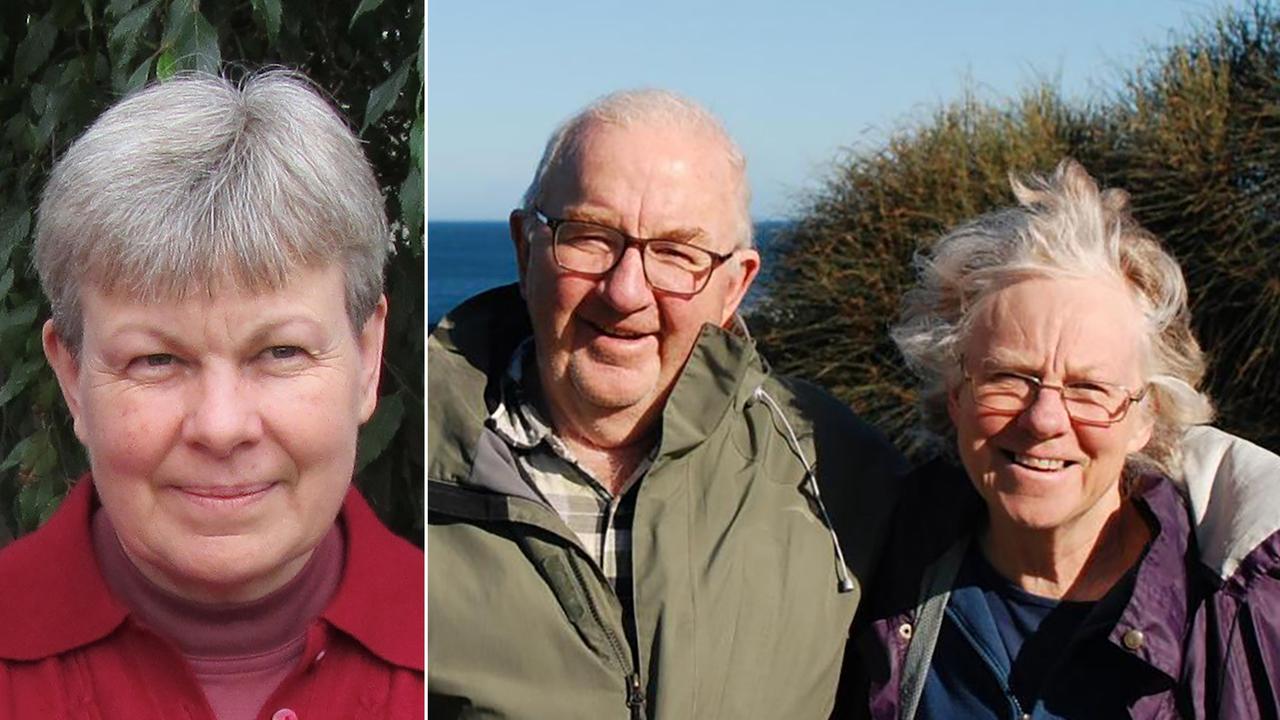
Other pre-trial evidence released for the first time included documents about poisoning found on devices police seized from Patterson’s home.
These included an appendix from a 2007 book titled Criminal Poisonings, which listed the colour, odour, taste and lethal dose of poisons.
Another piece of evidence, a Facebook post to a poisons page, was not shown to the jury.
“My cat chewed on this mushroom just now,” the post said.
“He is having a vomit. Was in grassland near trees, I’m in Victoria Australia.”
None of this information has been proven or tested before a jury because it was ruled out of the triple murder trial.
Patterson was found guilty by a jury of the murder of Simon’s parents, Don and Gail, 70, and his aunt Heather Wilkinson, 66, along with the attempted murder of her husband Ian Wilkinson.
The jury found Patterson deliberately poisoned her four lunch guests in July 2023 by serving them death cap mushroom-laced beef Wellingtons.
Patterson will face a two-day pre-sentence hearing later in August, during which she will listen to statements from the Pattersons and Wilkinsons.
The plea hearing is on August 25 and 26.
Patterson will have 28 days to appeal after she is sentenced.
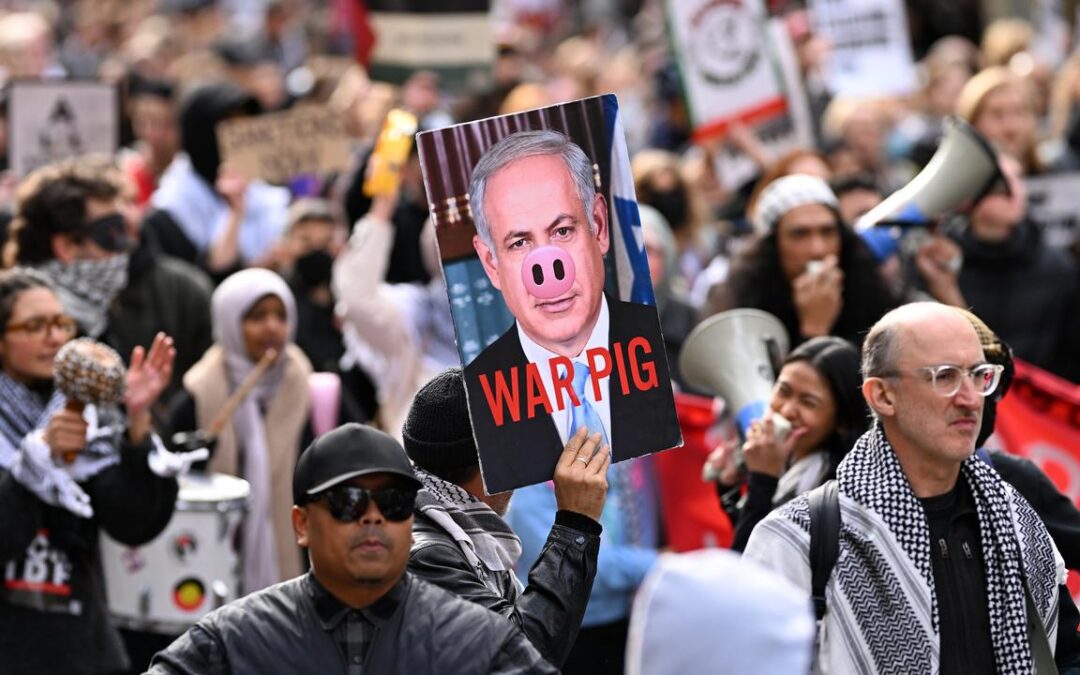
‘Red line’ warning against Israel’s Gaza takeover plan
Israel’s plan to take control of Gaza must be a “red line” for the Albanese government as opponents call for sanctions in light of the decision.
Overnight, Israeli Prime Minister Benjamin Netanyahu said his nation intended to take military control of all of Gaza in the latest development in the bloody war in the strip that began almost two years ago.
“We intend to,” Mr Netanyahu told Fox News when asked if Israel would take over the entire territory.
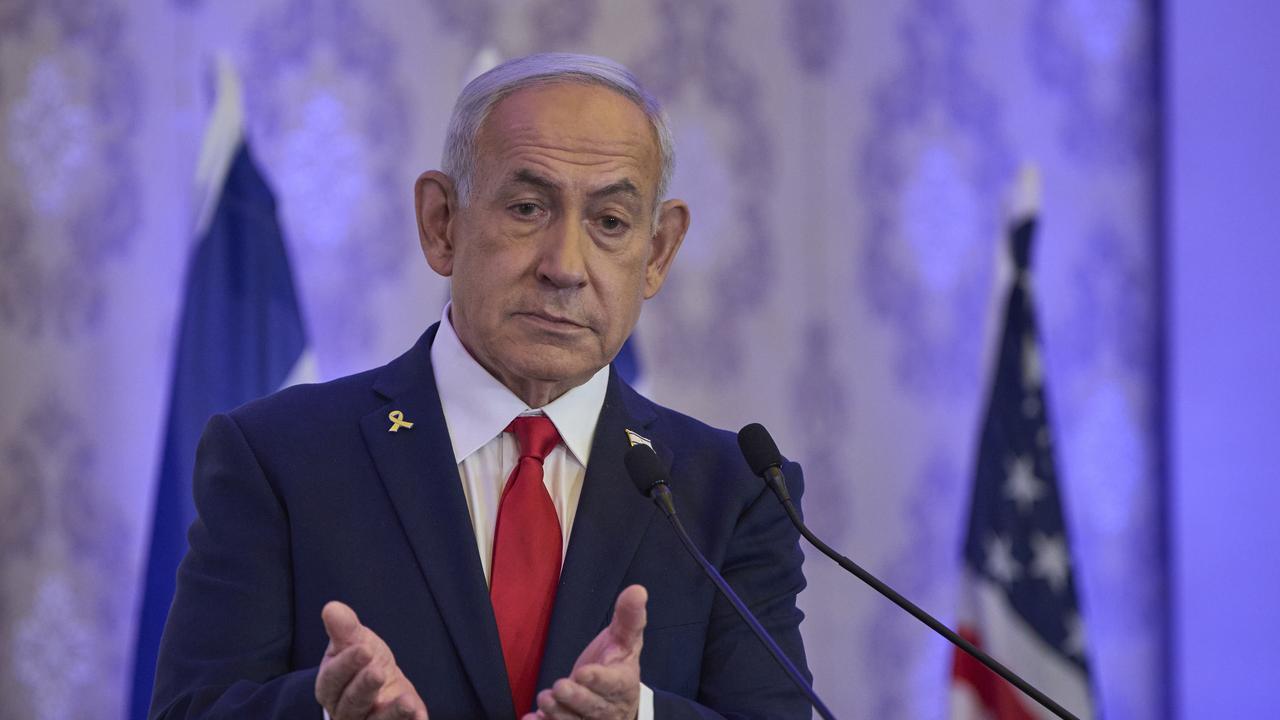
Israel would eventually hand over the territory to Arab forces, who would govern it, he said.
“We don’t want to keep it,” Mr Netanyahu said.
“We want to have a security perimeter. We don’t want to govern it. We don’t want to be there as a governing body.”
Early on Friday, Israel’s security cabinet approved a plan to take over Gaza City, Mr Netanyahu’s office later confirmed.
Israel should not move ahead with the plan, Foreign Minister Penny Wong said.
“Australia calls on Israel to not go down this path, which will only worsen the humanitarian catastrophe in Gaza,” she said.
“Permanent forced displacement is a violation of international law.”

Greens senator David Shoebridge called on the government to impose sanctions on Israel similar to those rolled out against Russia following its invasion of Ukraine in 2022.
“After two years of inaction, this must be a red line for the Albanese government,” he said.
“The time is now for immediate and strong action … end the two-way arms trade and sanction key decision makers, including the (Israeli) security cabinet.”
But Executive Council of Australian Jewry co-chief Alex Ryvchin said Mr Netanyahu’s proposal would mean the defeat of Hamas, the designated terrorist organisation whose actions began the latest conflict.
“The proposal, as I understand, it is to conquer Gaza, to remove the last bastions of Hamas strongholds, to dismantle infrastructure, hopefully rescue the hostages and then hand over control of the strip to an international force made up of Arab nations as a transition towards Palestinian self-government,” he told ABC TV.
“The Palestinians have to determine their own future, but Hamas has to be removed from power as well.”
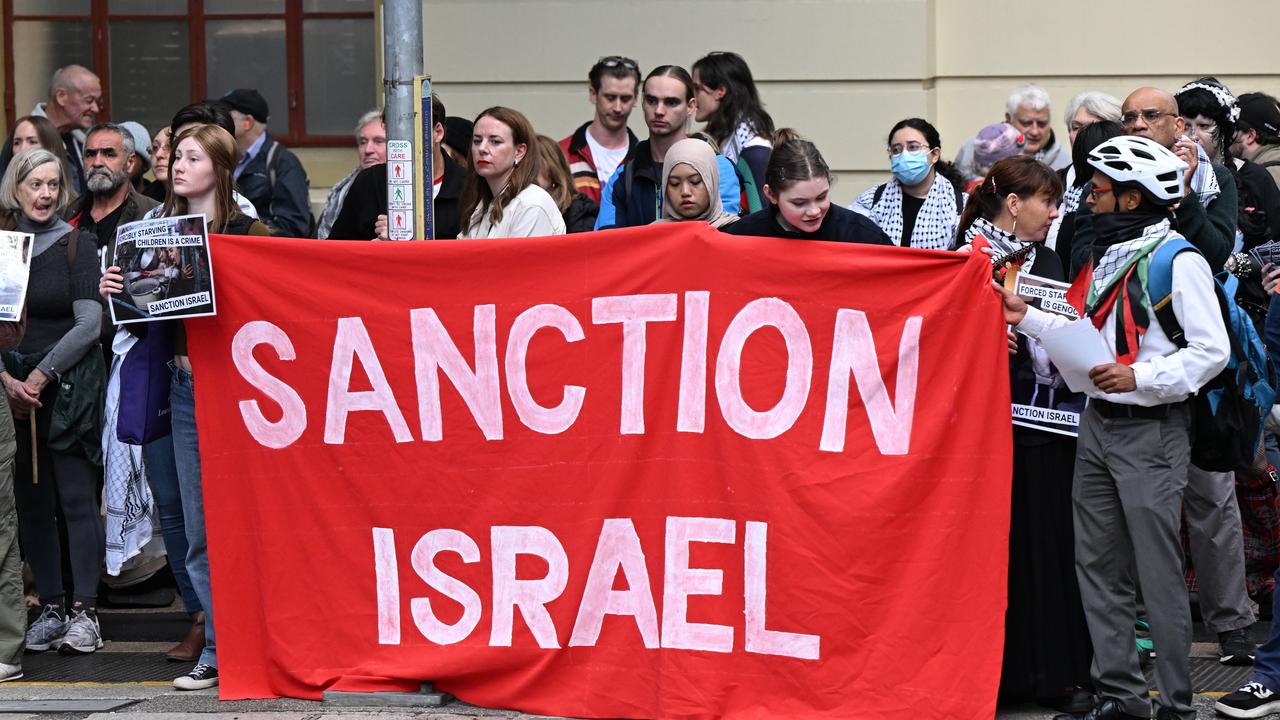
Australian Palestine Advocacy Network president Nasser Mashni said the Albanese government must go beyond “flimsy acts of diplomacy” to prevent a takeover of Gaza.
“There can surely be no remaining pretence that Israel is doing anything other than permanently erasing Gaza in order to occupy and annex it,” he said.
“Gaza has already been occupied, besieged and bombed by Israel for decades.
“What is happening now is the final stage of ethnic cleansing and the world is enabling it.”
The Israeli government has said it wants total victory in its war with Hamas, which attacked the nation’s south in October 2023, killing about 1200 people and taking 251 hostages.
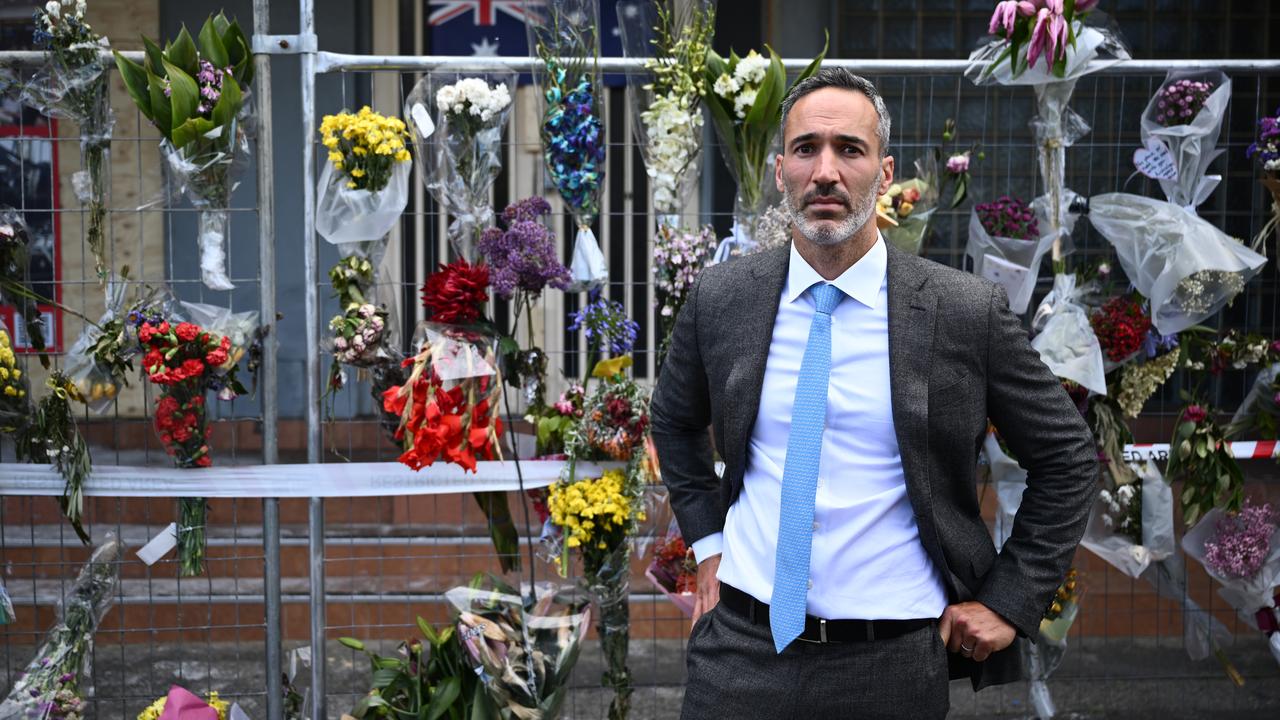
Israel’s retaliatory assaults have killed more than 61,000 Palestinians, according to the Gaza health ministry.
Almost 200 people, nearly half of them children, have reportedly died of starvation.
The worsening humanitarian situation has driven plans from the UK, France and Canada to call for the recognition of Palestine at a United Nations meeting in September, pending conditions such as Hamas returning remaining hostages.
Australian government ministers have said the nation’s recognition of Palestinian statehood is a matter of “when, not if”.
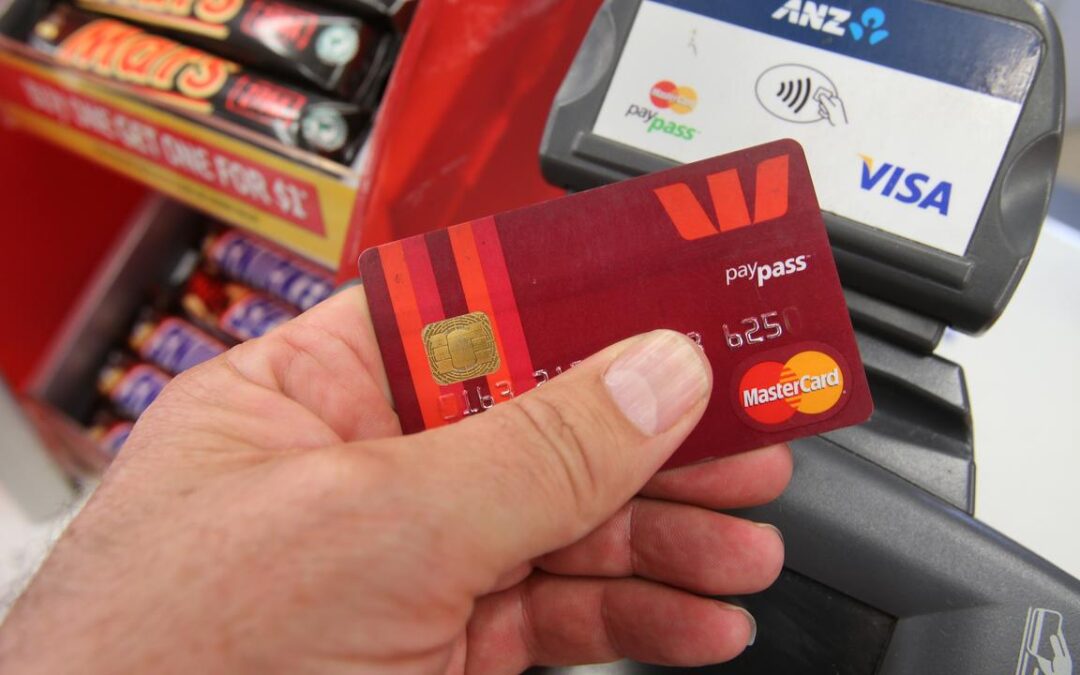
‘Struggling more than ever’: Debt reaches six-year high
A record number of Australians experiencing “very distressed” financial situations have reached out for debt support, and the pressures are showing no signs of abating.
The National Debt Helpline had more than 168,000 people reach out during the 2024-25 financial year.
It marks a record high with the most calls and chat messages since 2018-19.
“It’s really telling us that people are struggling more than ever,” helpline co-ordinator Vicki Staff told AAP.
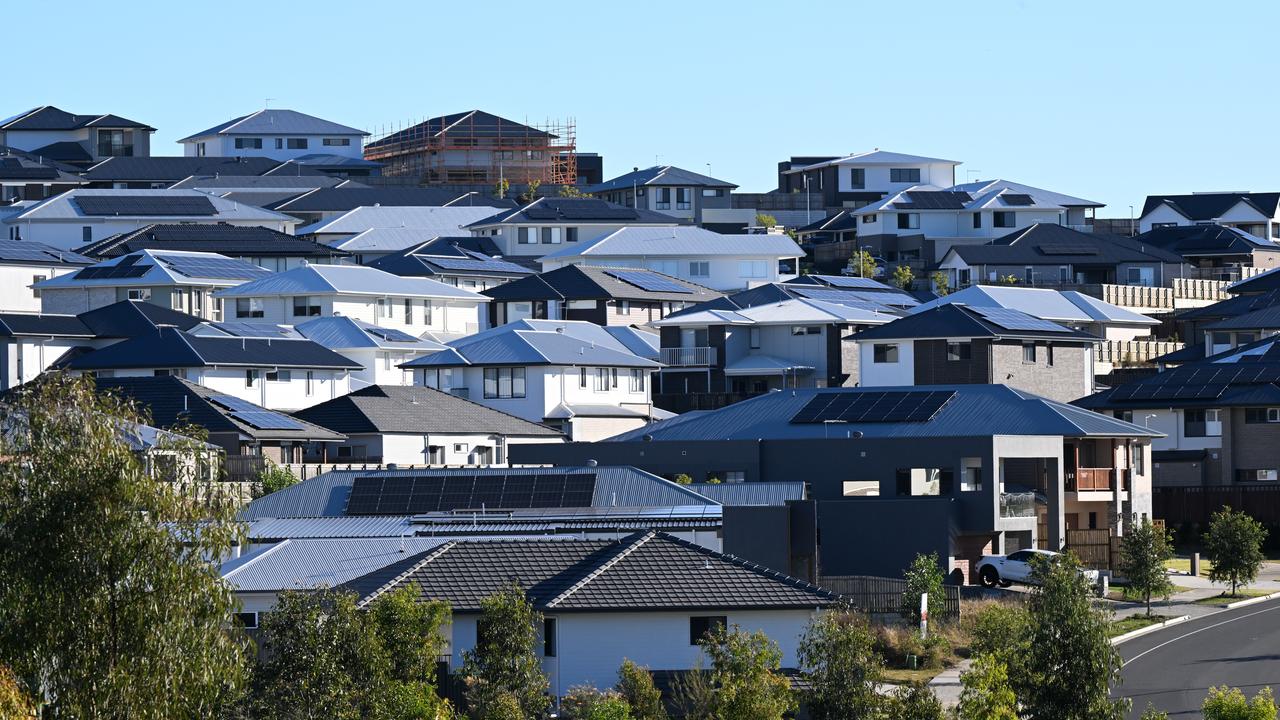
The key issues weighing on Australians are housing stress, including mortgages, rent rates and strata or body corporate costs.
Utilities including electricity, gas and water costs are among the other concerns as well as problematic credit card debt, personal loans and owing the Australian Taxation Office.
Each state and territory can have a different order of the most prominent financial stress.
“You might find that in one state, utilities are actually coming through as the number one presenting issue, and then maybe housing number two,” Ms Staff said.
The current financial issues are different to those experienced in 2018-19 when rental stress, strata and body corporate costs were not reported as key pressures.
Personal loans were also not a predominant issue in 2018-19. Instead, Buy Now Pay Later schemes were weighing on Australians.
When Australians call the debt helpline, it is when they believe they have exhausted all their options to solve their financial woes.
“People have really done their best … to cope with this cost of living crisis, but eventually they get to a point where they can’t think of what else to do,” Ms Staff said.
“It seems pretty insurmountable. They’re usually in a highly stressed state.”
But the debt crisis shows no sign of slowing, with 15,000 people already seeking support in July for the new financial year.
There is hope the Reserve Bank of Australia will lower interest rates – currently at 3.85 per cent – later in 2025, which would ease some pressure on households.
The central bank looks set to shave 25 basis points off the cash rate when it meets next week.
The National Debt Helpline offers financial counselling and self help guides to help provide options to overcome difficult financial situations.
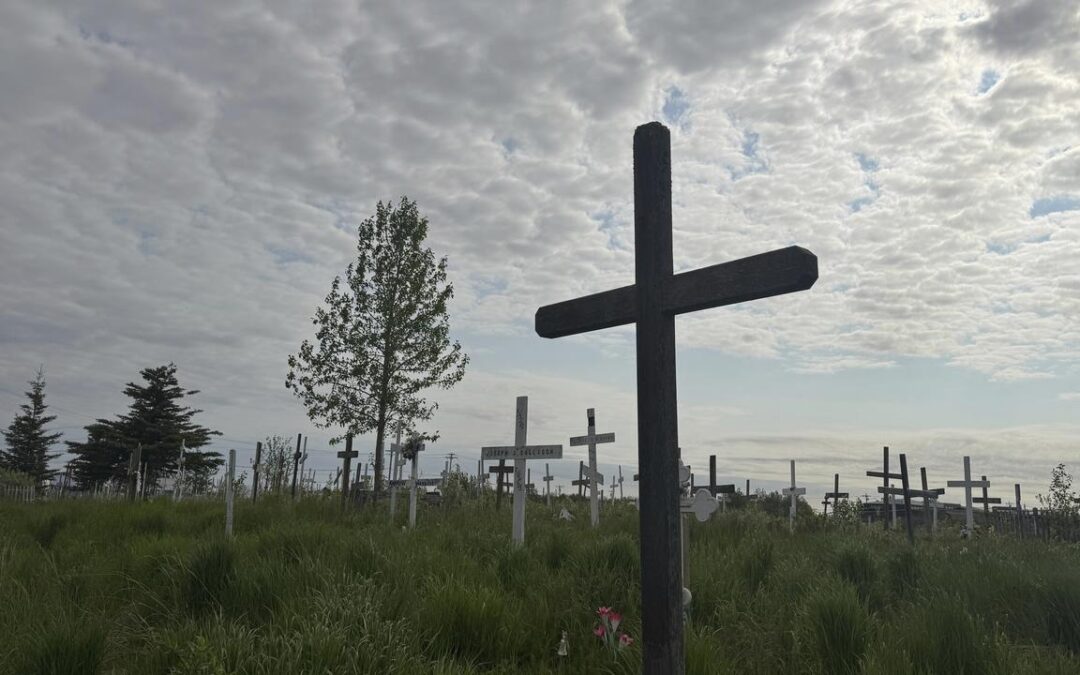
Alaska conflicted over mining push, indigenous customs
Fish camps still dot the banks of the broad Kuskokwim River in southwestern Alaska.
Wooden huts and tarped shelters stand beside drying racks draped with bright red strips of salmon.
Alaska Native families have harvested fish for generations and preserved them for the bitter winters ahead.
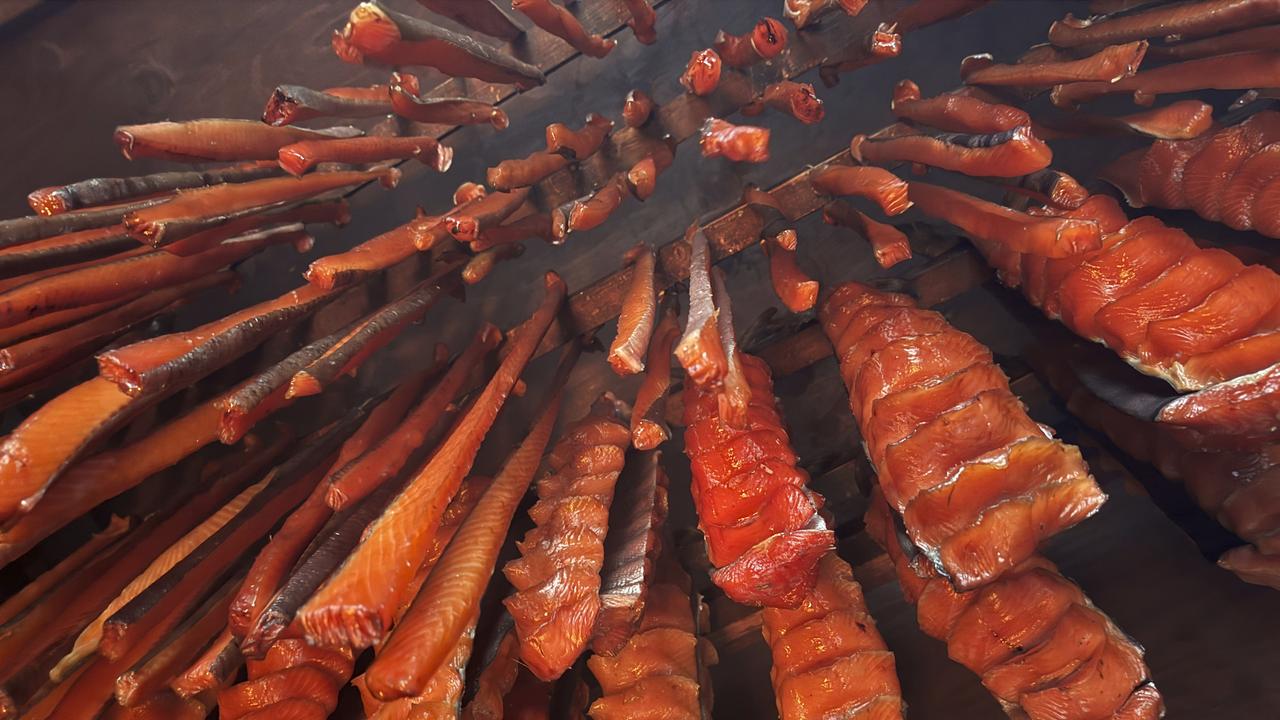
But the once-abundant salmon populations have declined so sharply in recent years that authorities have severely restricted subsistence fishing on Alaska’s second-longest river.
They’ve imposed even tighter restrictions on the longer Yukon River to the north.
Various factors are blamed for the salmon collapse, from climate change to commercial fishing practices.
What’s clear is the impact is not just on food but on long-standing rituals — fish camps where elders transmit skills and stories to younger generations while bonding over a sacred connection to the land.
“Our families are together for that single-minded purpose of providing for our survival,” said Gloria Simeon, a Yup’ik resident of Bethel.
“It’s the college of fish camp.”
So when Alaska Natives debate proposals to drill, mine or otherwise develop the landscape of the nation’s largest state, it involves more than an environmental or economic question.
It’s also a spiritual and cultural one.
“We have a special spiritual, religious relationship to our river and our land,” said Simeon, standing outside her backyard smokehouse where she uses birch-bark kindling and cottonwood logs to preserve this year’s salmon catch.
“Our people have been stewards of this land for millennia, and we’ve taken that relationship seriously.”
Put a pin just about anywhere on the map of Alaska, and you’re likely to hit an area mulling a proposed mine, a new wilderness road, a logging site, an oil well, or a natural gas pipeline.
Such debates have intensified during US President Donald Trump’s second term.
His administration and allies have pushed aggressively for drilling, mining and developing on Alaska’s public lands.
Native leaders and activists are divided about extraction projects.
Supporters say they bring jobs and pay for infrastructure, while opponents say they imperil the environment and their traditions.
Trump singled out Alaska as a priority for extraction projects in an executive order signed on his first day in office.
“Unlocking this bounty of natural wealth will raise the prosperity of our citizens while helping to enhance our Nation’s economic and national security,” the order said.
Increasingly, words are turning to action.
Congress, in passing Trump’s budget bill in July, authorised an unprecedented four new sales of oil and gas leases in the coastal plain of the Arctic National Wildlife Refuge, and still more in other locations.
Trump cabinet officials made a high-profile visit in June to Prudhoe Bay in Alaska’s far north — an aging oil field that is one of the largest in North America.
They touted goals of doubling the oil coursing through Alaska’s existing pipeline system and building a massive natural gas pipeline as its “big, beautiful twin”.
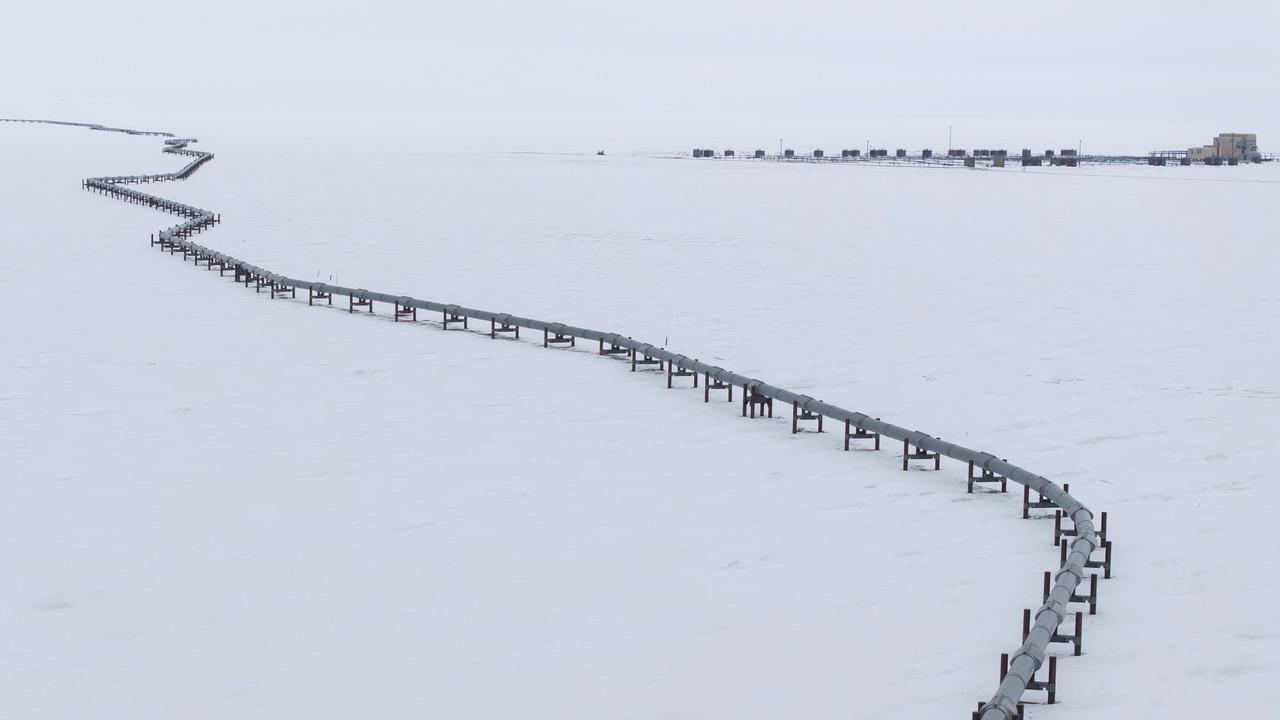
It takes years for proposed extraction projects to unfold, if they ever do.
The extent of oil reserves in the Arctic refuge remains uncertain.
No major oil company bid during the only two lease sales offered to date in the Arctic refuge.
But the measures pushed by the new administration and Congress amount to the latest pendulum swing between Republican and Democratic presidents, between policies prioritising extraction and environmental protections.
The budget bill calls for additional lease sales in the National Petroleum Reserve-Alaska, west of the Arctic refuge, and opening more areas to potential leasing than authorized under recent Democratic administrations.
Alaska’s political leaders generally have cheered on the push for more extraction, including its Republican congressional delegation and its governor, who has called his state “America’s natural resource warehouse”.
So have some Native leaders, who say their communities stand to benefit from jobs and revenues.
They say such projects are critical to their economic prospects and self-determination, providing jobs and helping their communities pay for schools, streets and snow removal.
“We need jobs. Our people need training. To stand on our own two feet. Our kids need a future,” said PJ Simon, first chief of the Allakaket Tribal Council.
But Native opponents of such projects say short-term economic gains come at the risk of long-term environmental impacts that will reverberate widely.
“We’re kind of viewed as the last frontier, like we have unlimited resources,” said Sophie Swope, executive director of the environmental advocacy group Mother Kuskokwim Tribal Coalition.
She said Alaska’s most renewable resources — such as salmon, deer and other migratory wildlife — are threatened both by overly aggressive ocean fishing and by extractive industries.
“There’s that lack of respect for our traditional subsistence lifestyles,” she said.
Opponents of oil drilling in the Arctic refuge fear it will permanently disrupt the long-range migration of caribou, which Native people have hunted for millennia.
A massive caribou herd goes to the refuge’s coastal plain to calve in the spring before fanning out across a wider area, providing a crucial food source for Native hunters in Alaska and Canada.
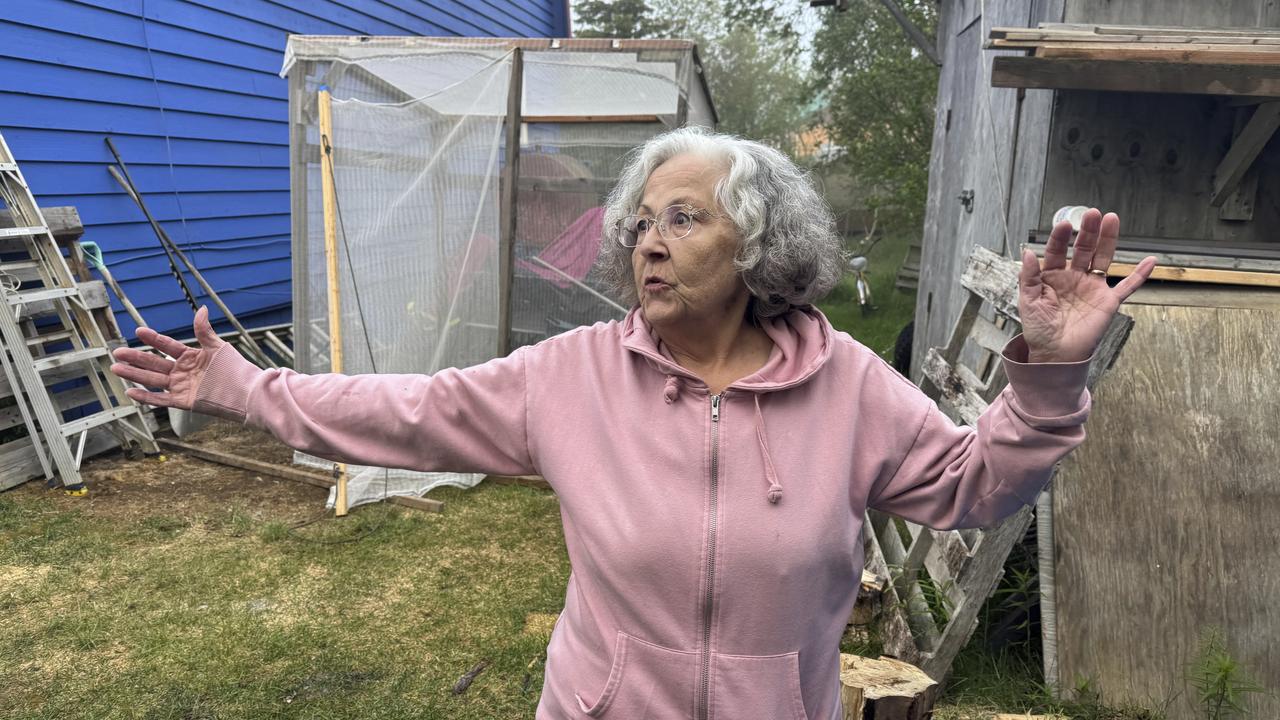
If the herd’s migration is disrupted, opponents fear an impact similar to the salmon collapse — a loss not just of food but of a focal point of culture and spirituality.
Simeon said the disruption of communal hunting and fishing activities leads to a spiritual rootlessness that she believes contributes to alarming rates of addictions and suicide among Alaska Native people.
“What does it do to your heart and soul when you have to look at an empty smokehouse year after year after year, and you can’t provide for your family?” Simeon said.
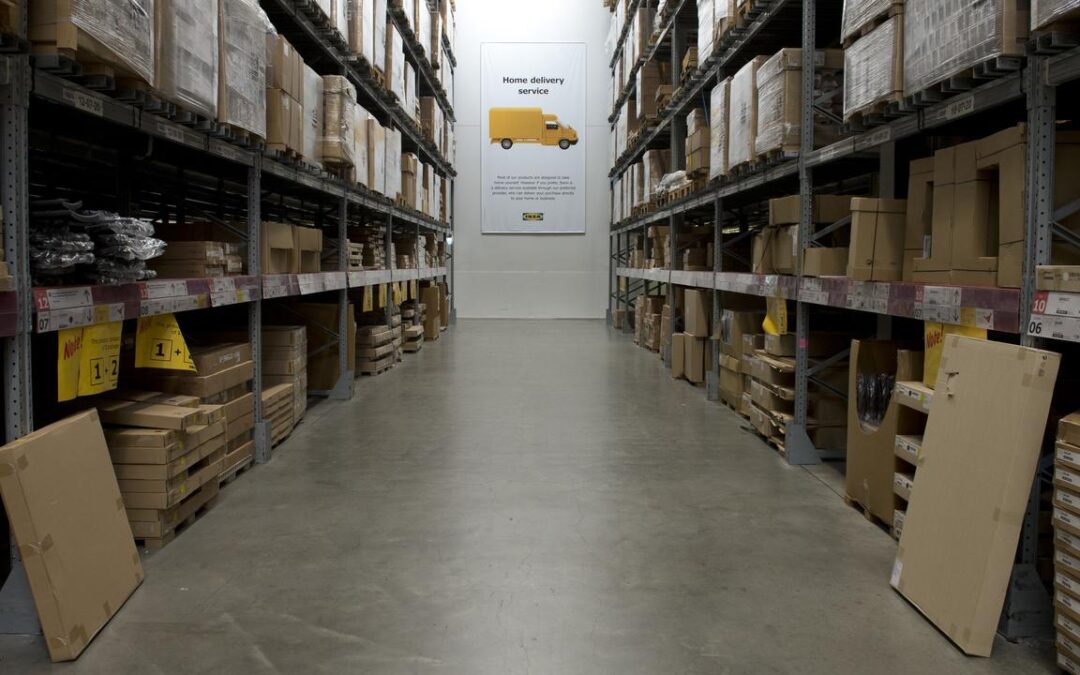
Rethink on rules for everyday items could spur economy
Fixing rules for baby formula, carpeting, furniture packaging and other items could save Australians billions and stimulate the economy as the federal government seeks solutions to ailing productivity.
Australia has more than 7500 standards to ensure its products and services are safe.
But a Productivity Commission interim report has found more than three-quarters do not have an equivalent international standard, 40 per cent of those in legislation are obsolete or superseded and only one in four are consistently implemented by the states, territories and Commonwealth.
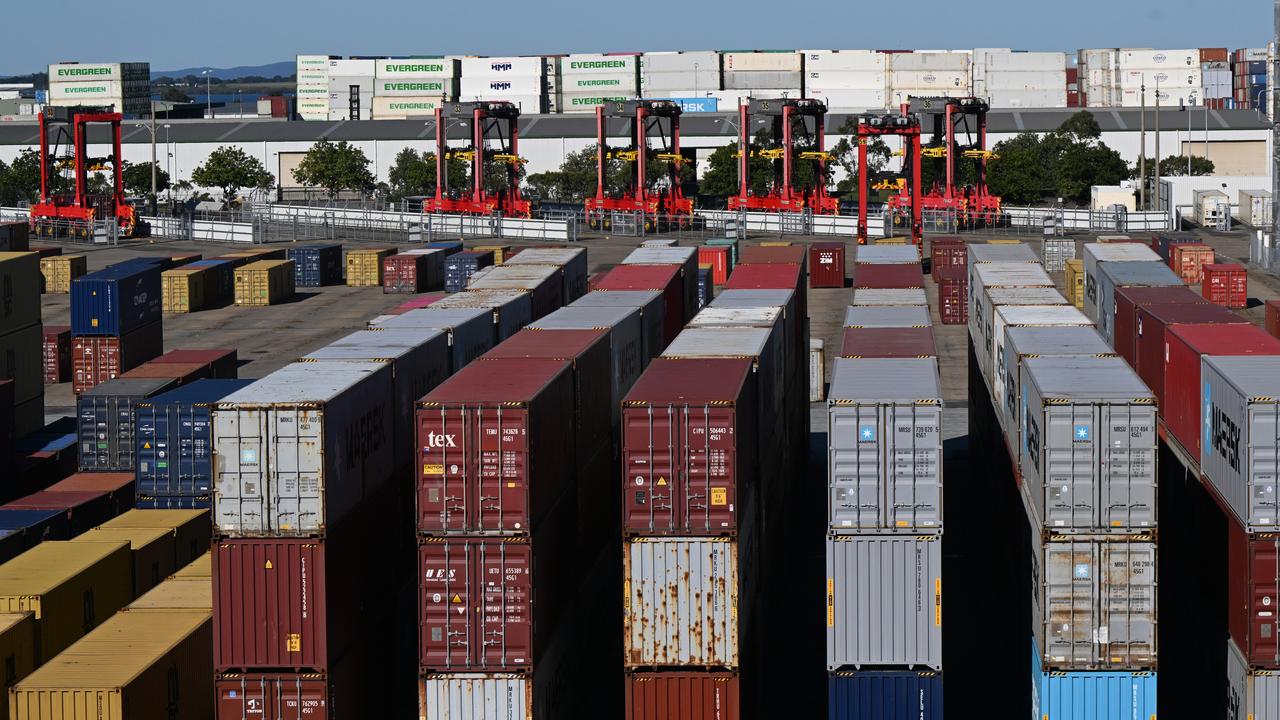
As a result, Australia’s labelling requirements for infant formula differ from those in Europe, the US and Hong Kong, which makes local manufacturers less competitive in those export markets.
Swedish furniture giant IKEA has also pointed to differences in packaging standards from overseas frameworks, and inconsistencies across states and territories impose unnecessary costs and undermine the efficiency and scalability of recycling efforts.
Differences in flooring standards between states and territories are the source of the flooring sector’s “greatest inefficiencies”, the Carpet Institute of Australia has found.
The consequences are so far-reaching aligning standards across Australia with overseas requirements could be worth almost $4 billion a year – potentially raising GDP by 0.2 per cent, the Productivity Commission found.
Harmonising standards would improve compatibility and increase competition by allowing more overseas-designed products to be sold in Australia, increasing competition, while reducing costs through economies of scale.
It would also pave the way for productivity gains by giving Australians earlier access to new technologies and improving public welfare by making it easier to acquire less expensive medical devices.
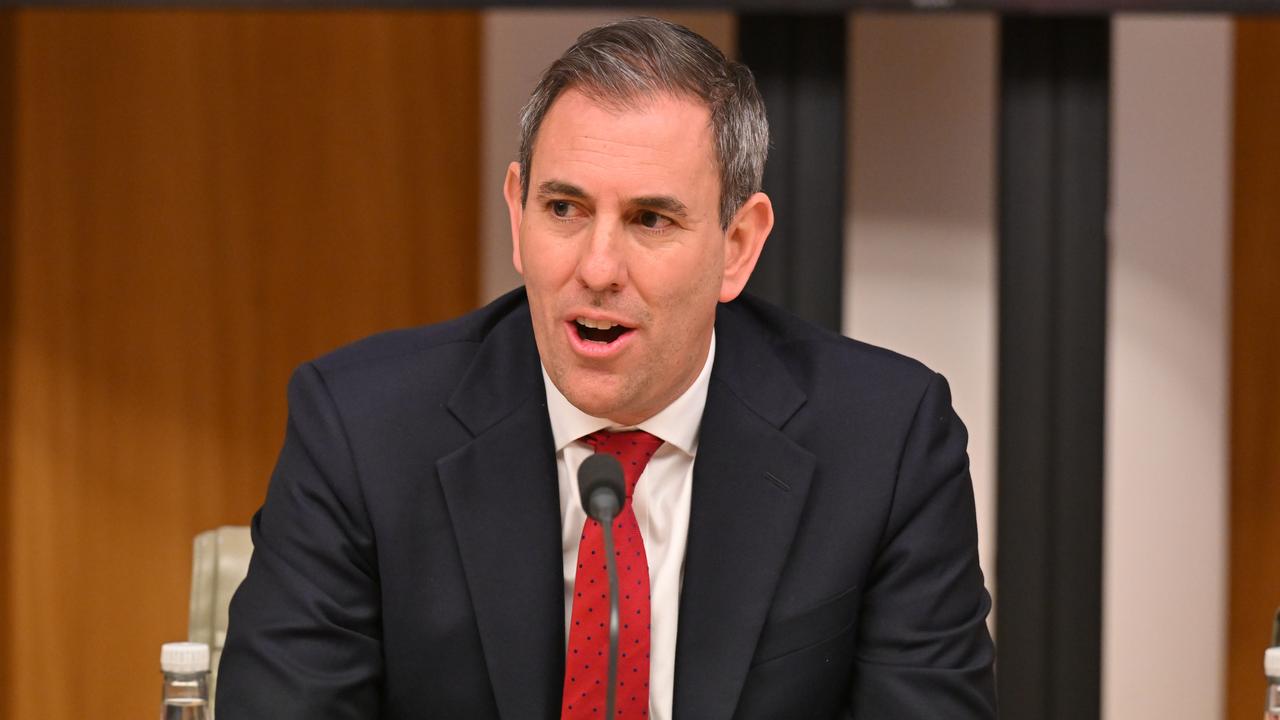
Treasurer Jim Chalmers welcomed the interim report and acknowledged standards reform could help Australians save and ease burdens on businesses.
“We’ve made good progress in some areas but there’s more to do,” he said.
The independent government advisory body also recommended states and territories join an automatic mutual recognition scheme for workers who require specific licenses for their jobs, allowing them to move freely across Australia to places where their skills are most needed.
These recommendations could be considered when Dr Chalmers convenes his economic roundtable later in August.
During the event, a range of experts are expected to discuss ways to lift living standards for Australians by boosting productivity, building resilience and strengthening the budget.
Proposals by other groups include increasing GST to 15 per cent, slashing property investor tax breaks and leaning on artificial intelligence.
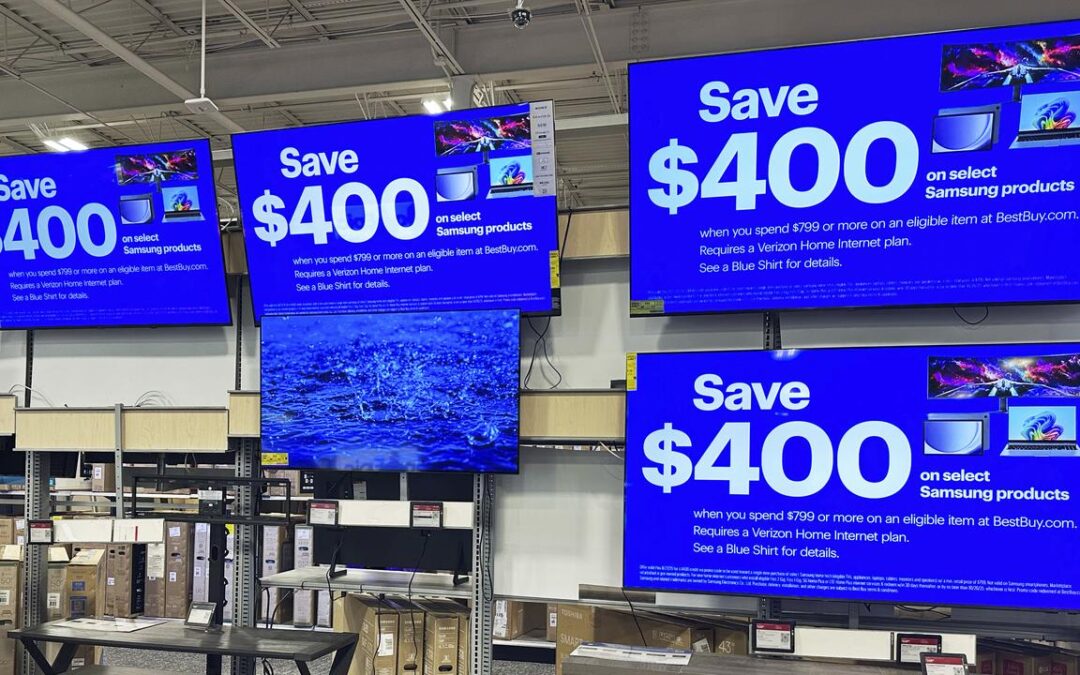
Trump’s higher tariffs spark defiance and concern
US President Donald Trump’s higher tariffs on imports from dozens of countries have kicked in, raising the average US import duty to its highest in a century and leaving major trade partners such as Switzerland, Brazil and India hurriedly searching for a better deal.
The US Customs and Border Protection agency began collecting the higher tariffs of 10 per cent to 50 per cent on Thursday after weeks of suspense over Trump’s final tariff rates and frantic negotiations with countries seeking to lower them.
The leaders of Brazil and India vowed not to be cowed by Trump’s hardline bargaining position, even while their negotiators sought a reprieve from the highest tariff levels.
The new rates will test Trump’s strategy for shrinking US trade deficits without causing massive disruptions to global supply chains or provoking higher inflation and stiff retaliation from trading partners.
After unveiling his “Liberation Day” tariffs in April, Trump has frequently modified his plans, slapping much higher rates on imports from some countries.
These include 50 per cent for goods from Brazil, 39 per cent from Switzerland, 35 per cent from Canada and 25 per cent from India.
He announced on Wednesday a further 25 per cent tariff on Indian goods, to be implemented in 21 days over India’s purchases of Russian oil, on top of the 25 per cent already imposed.
Tariffs are ultimately paid by companies importing the goods and passed on in full or in part to consumers of end products.
Trump’s top trade negotiator, Jamieson Greer, said the US was working to reverse decades of policies that had weakened US manufacturing capacity and workforce, and that many other countries shared concerns about macroeconomic imbalances.
“The rules of international trade cannot be a suicide pact,” he wrote in a column published by the New York Times.
“By imposing tariffs to rebalance the trade deficit and negotiating significant reforms that form the basis of a new international system, the United States has shown bold leadership,” Greer said.
Eight major trading partners accounting for about 40 per cent of US trade flows have reached framework deals for trade and investment concessions to Trump, including the European Union, Japan and South Korea, reducing their base tariff rates to 15 per cent.
Britain won a 10 per cent rate, while Vietnam, Indonesia, Pakistan and the Philippines secured rate reductions to 19 per cent or 20 per cent.
Countries with punishingly high duties, such as India and Canada, “will continue to scramble around trying to fix this,” he added.
Switzerland’s President Karin Keller-Sutter said on Thursday that talks with the US would continue after she returned home empty-handed from an 11th-hour trip to Washington aimed at averting the crippling US import tariff on Swiss goods.
A last-minute attempt by South Africa to improve its offer in exchange for a lower tariff rate also failed.
The two countries’ trade negotiating teams would have more talks, South African President Cyril Ramaphosa’s office said.
Meanwhile, Brazil’s President Luis Inacio Lula da Silva told Reuters on Wednesday he would not humiliate himself by seeking a phone call with Trump even as he said his government would continue cabinet-level talks to lower a 50 per cent tariff rate.
Indian Prime Minister Narendra Modi was similarly defiant, saying he would not compromise the interests of the country’s farmers.
The pressure has also strengthened India’s commitment to a “strategic partnership” with Russia, with Russian President Vladimir Putin set to visit by the end of the year.
Some countries were also rallying together to confront Trump, with Brazil’s Lula saying he would call the leaders of India and China to discuss a joint BRICS response to tariffs.
Trump has repeatedly railed against BRICS members and recently threatened to subject their imports to an additional 10 per cent tariff.